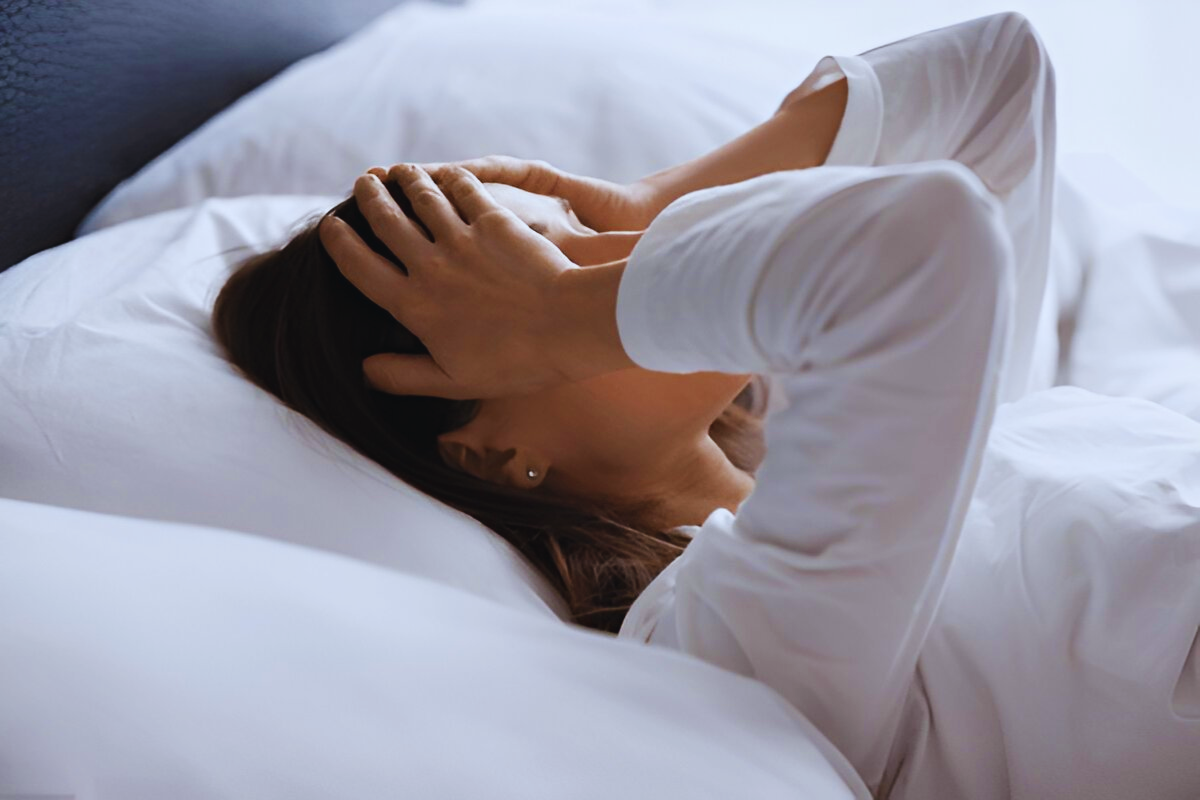Why You Keep Waking Up in a Dream: It is not rare that the dream is about going to bed, preparing and getting up, and afterward, when they realize they are still in the dream, they call it false awakening. It could be really confusing and even terrifying sometimes. The experts say that the phenomenon of false awakening is a situation in which the imagination room stage takes place during our sleep, which is linked to the vivid dreams.
What Is a False Awakening?
A false awakening is a case of when the person dreams of waking up but in reality still being fast asleep. It was real and many of the peoples lieve that they just began their usual morning routine. But suddenly, they realize that something is not ok. Then, they are truly awake. There are people even who have several false awakenings in a line, which is annoying.
Why Do False Awakenings Happen?
Poles of experts are investigating the causes, although they have found several possible ones:
- Stress and Anxiety – Sleeping with your brain in overdrive because of stress can sometimes lead to abnormal dreams.
- Being Pared of Sleep – Get to bed when it is late and sleep really for just a little and that may lead to doing such things.
- Lucid Dreaming – Besides people having lucid dreams (where they realize that they are dreaming) can have false awakenings as well.
- Sleep Disorders – Conditions like insomnia or sleep paralysis may make false awakenings more common.
In her comment, a sleep specialist, Dr. Lisa Carter, tells, “False awakenings are not dangerous, but they can scare a lot of people. It could be a notion that some of the strange sleep behaviors are for you (if they are very frequent). You may need to change your habits.
False Awakening vs. Sleep Paralysis
Often people get confused false awakening and sleep paralysis. In sleep paralysis, a person can get up but feel immovable. They can’t make any movement or sound for a few seconds. It has to do with the fact that they commonly first have horror-detector hallucinations. On the other hand, false awakenings are not scary and the person is usually awake when they realize they are still dreaming.
Signs That You Are in a False Awakening
- You wake up and start your routine but things look a bit different.
- The clock or objects around you seem busily losing full dimension.
- The light switch doesn’t yield satisfying results, from your point of view.
- You feel that you are in a false awakening situation several times in a row, as if you are stuck in a recurrent cycle.
How to Wake Up from a False Awakening
The first thing to do once you have successfully recognized that you are in a trapped state is to try to make use of these techniques in order to wake yourself up:
- Blink Rapidly – Non-stop moving eyes can help one to break the dream.
- Focus on Your Hands – Staring at your hands can help you identify the fact that you are dreaming.
- Change the Scene – Experiment performing the tricks like jumping, spinning, or trying some other bizarre thing to escape from the dream.
- Relax and Let Go – Sometimes pushing wake up will keep you from doing it. Be calm, and body will automatically wake up.
How to Prevent False Awakenings
If you come across many false awakenings, your sleep schedule may be to blame, but taking in more healthy sleep habits can probably solve the problem:
- Stick to a Sleep Schedule – By going to bed at the same time and waking up at the same time, you normalize sleep patterns.
- Reduce Stress – The mind can become calmer through meditation, journaling, and breathing exercises, which can be performed before falling to sleep.
- Screen Time Limits – If you do not want to have a bad sleep, do not use your phone, computer, or any other device that has a bright light an hour before going to bed.
- Quality Improvement for Sleep – Deep and peaceful sleep is promoted by choosing a cool and dark room that has few or no disturbances.
- Don’t Consume Caffeine After Midday – The result will be a bad sleep, and possibly, an increased dream activity due to the caffeine since it is a CNS stimulant and this disruption is among the common side effects.
When to Seek Medical Advice
Although false awakenings are not always a problem, if they occur often and interfere with your sleep, you should make an appointment with your doctor. They would first of all inquire if you have any underlying sleep problems, such as insomnia or sleep difficulties caused by anxiety, to which they would then diagnose and offer solutions.
Feeling as if you wake up but, in fact, you do not actually arises as a rather strange and often disturbing part of the dream process. By how people feel or by their actions, traumatic life experiences and stressful situations symbolize the so-called stress-induced dreams.
In case you are struggling with false awakenings and you need help, some relaxation techniques that you can practice before going to bed are also helpful. Another way to prevent wake-ups is by setting the atmosphere for a calm sleep, which can keep your brain in a deep sleep state for a longer time. Furthermore, if it occurs, do not get scared. You will wake up very soon.
To acquire more information as regards sleep research and professional advice, check our website for updates.

